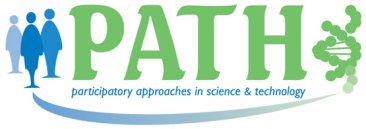 Proceedings of Conference. 4th-7th June 2006, Edinburgh, Scotland.
Proceedings of Conference. 4th-7th June 2006, Edinburgh, Scotland.
Opening Plenary
PHILIPPE GALIAY, European Commission
European Gover’Science and Framework Programme 7
Introduction to EC research: FP6 and FP7
Keynote speakers
JOHN DRYZEK: Australia National University
John is Professor in the Social and Political Theory Program in the Research School of Social Sciences at the Australian National University . John was born in the UK and educated there and in the USA , receiving his PhD in Government and Politics from the University of Maryland . Before joining the Programme he taught at Ohio State University , the University of Oregon , and the University of Melbourne . He was Head of the Political Science Departments at both Oregon and Melbourne . He is a former editor of the Australian Journal of Political Science and Fellow of the Academy of the Social Sciences in Australia . He is currently the Head of the Social and Political Theory Program. Recent articles include: “Social Choice Theory and Deliberative Democracy: A Reconciliation” (with C. List), British Journal of Political Science (2003); “Environmental Transformation of the State: The United States, Norway , Germany , and the United Kingdom ” (with C. Hunold and D. Schlosberg), Political Studies (2002); “Legitimacy and Economy in Deliberative Democracy”, Political Theory (2001).
PRESENTATION: Deliberative innovation to different effect: Cross-national comparisons
Democratic theorists are attracted by the potential contribution to deliberative democratization of designed forums composed of lay citizens. Using a comparative study of consensus conferences on the issue of genetically modified food in Denmark , France , and the United States , we show that the democratic potential of such ‘mini-publics’ is radically different in different sorts of political system. In actively inclusive Denmark , mini-publics are deployed in integrative fashion; in exclusive France , in managerial fashion; in the passively inclusive United States , in advocacy fashion. If mini-publics are to contribute to deliberative democratization they need supportive structures and processes in government and the broader public sphere. The kinds of structures and processes required will again vary by political system type.
CAROLYN LUKENSMEYER: America Speaks
Carolyn’s work in public participation developed out of concerns about the deep partisan divide in Washington and the growing disconnection between citizens and government across the USA . It led her to launch America Speaks in 1995. Her goal was to develop new democratic practices that would strengthen citizen voice in public decision-making. She and America Speaks have won a number of awards, including two from the International Association for Public Participation (2001 and 2003). Prior to founding America Speaks, Carolyn served as Consultant to the White House Chief of Staff from November 1993 to June 1994. She also served as the Deputy Project Director for Management of the National Performance Review (NPR), Vice President Al Gore’s reinventing government task force. From 1986 to 1991, Carolyn served as Chief of Staff to Governor Richard F. Celeste of Ohio . She was both the first woman to serve in this capacity and, at the time of her appointment, the only Chief of Staff recruited from the professional management field. Carolyn also led her own successful organizational development and management consulting firm for 14 years. She worked with public and private sector organizations on four continents.
PRESENTATION: Scale and impact: Citizen voices in participatory decision-making
Conference papers by Session

